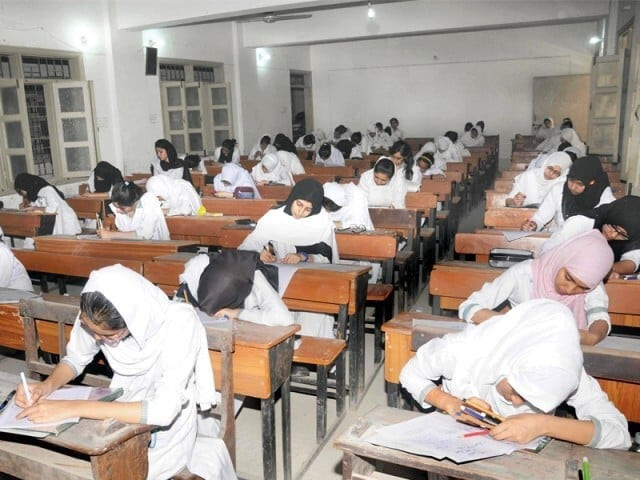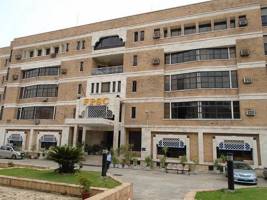.jpg)
Sindh Launches E-Marking System to End Cheating Culture and Promote Transparency in Exams
The Government of Sindh has officially launched the E-Marking System across several educational boards in the province, marking a major step toward digital transformation and transparency in examination processes. Multiple boards have already begun conducting experimental e-marking of examination papers, while the provincial education ministry aims to eliminate the traditional manual marking system that often led to errors, corruption, and malpractice.
The announcement came during a high-level meeting chaired by Sindh Minister for Universities and Boards, Muhammad Ismail Rahu, which lasted over three hours. The meeting focused on reforms in educational boards, performance reviews, and the implementation of the e-marking system in all Sindh universities and boards.
Digital Revolution in Sindh’s Examination System
Minister Ismail Rahu stated that the introduction of e-marking represents a significant milestone in Sindh’s educational reforms. The new system aims to curb the copy culture that has plagued examinations for decades while ensuring accuracy, fairness, and efficiency in paper marking.
He emphasized that the Department of Universities and Boards has fully digitized the data of universities, vice-chancellors, employees, and students to build a comprehensive and transparent database. According to the minister, this digital shift will enhance governance, accountability, and performance monitoring across the education sector.
“With the launch of e-marking, Sindh is moving toward a fair and transparent education system. Our goal is to end cheating practices and promote merit-based results,” said Minister Ismail Rahu.
E-Marking Implementation and Board Progress
During the meeting, chairpersons of various boards presented detailed briefings on the status of e-marking implementation. Officials revealed that Nawabshah and Sukkur boards have already fully transitioned their examination and paper marking systems to digital platforms.
The Chairman of Karachi Intermediate Board shared that the Federal Board of Intermediate and Secondary Education (FBISE), Islamabad, is providing Karachi Board with free software, training, and IT infrastructure support to facilitate smooth implementation.
Moreover, the Karachi, Hyderabad, Larkana, and Mirpurkhas boards have successfully conducted at least one subject’s paper under the e-marking system as a pilot project. Notably, the Larkana Board has already marked 9th and 11th-grade papers using this digital method — a first for the region.
Transparency, Cost Reduction, and Environmental Benefits
Minister Rahu highlighted that the e-marking initiative will not only promote transparency but also reduce government expenses associated with paper-based examination systems. The automation process minimizes paper usage, contributing to environmental sustainability and climate improvement — a goal aligned with the province’s broader green policy framework.
He explained that transitioning to digital systems would help reduce errors, accelerate result compilation, and ensure every student’s performance is evaluated fairly and objectively.
“E-marking will save time, money, and resources. It will eliminate human errors, ensure accuracy, and contribute to environmental protection by minimizing paper consumption,” the minister noted.
Solar Energy Integration for Examination Boards
Addressing the ongoing power crisis affecting many educational institutions, the minister also announced a plan to shift Karachi and Larkana Matric Boards to solar energy. This move aims to ensure uninterrupted operations during examinations and administrative activities.
“The solar power shift will guarantee that all academic and office activities continue smoothly without electricity disruptions,” Rahu added.

Focus on Student Welfare and Administrative Reforms
Minister Ismail Rahu directed all boards to ensure that student issues are resolved without delays. He instructed the boards to establish efficient online complaint systems and develop faster communication channels between students, teachers, and administrators.
He also announced the establishment of a new promotion system for departmental employees to ensure that all staff members receive their due promotions on time. Furthermore, the ministry has introduced policy and legal reforms to improve institutional governance, transparency, and service delivery across all universities and boards in Sindh.
“We have implemented a proper promotion mechanism to ensure that every employee receives timely recognition and advancement. Our reforms are aimed at strengthening institutional management and improving public service,” Rahu emphasized.
A Step Toward Modern Education Governance
The Sindh government’s E-Marking System aligns with its broader mission to modernize educational governance. Through automation and digitalization, the province aims to enhance efficiency, accountability, and fairness within its examination ecosystem.
This initiative also reflects the government’s commitment to meritocracy, ensuring that students’ results reflect their true performance rather than favoritism or manipulation.
The E-Marking System is expected to gradually expand to all matric and intermediate boards in Sindh over the next academic year. The education department has already begun training teachers, examiners, and IT staff to ensure the system’s seamless rollout across the province.
Sindh’s launch of the E-Marking System marks a new era in Pakistan’s educational reform. By embracing technology, the province is taking a firm stand against the deep-rooted issues of copy culture, corruption, and inefficiency in examinations.
With continued support from the federal board and the implementation of digital and solar-powered solutions, the initiative is set to bring about sustainable progress, ensuring that transparency, fairness, and innovation define the future of education in Sindh.












.jpg)


